BBC Sound Of 2016: Mura Masa interview
- Published
Mura Masa has come joint fifth in the BBC Music Sound Of 2016 list
Bedroom pop artist Mura Masa has come joint fifth in the BBC Music Sound of 2016 with R&B group WSTRN.
Named after Japanese sword-smith Muramasa Sengo, the Guernsey-born musician comes armed with deft beats, exotic instrumentation and heartbreaking lyrics.
Like his namesake, he says he wants the music "to cut like a knife".
Only 19 years old, he has already created a strong body of original material, incorporating Asian soundscapes (Shakuhachi flutes, thumb pianos) into his glitchy electronica.
His most recent track, Love For That, external, is a sumptuous, string-drenched ballad which found its way onto the BBC 1Xtra playlist after being played more than a million times on SoundCloud.
The musician, whose real name is Alex Crossan, talked to the BBC from the flatshare in Brighton where he records all of his music.

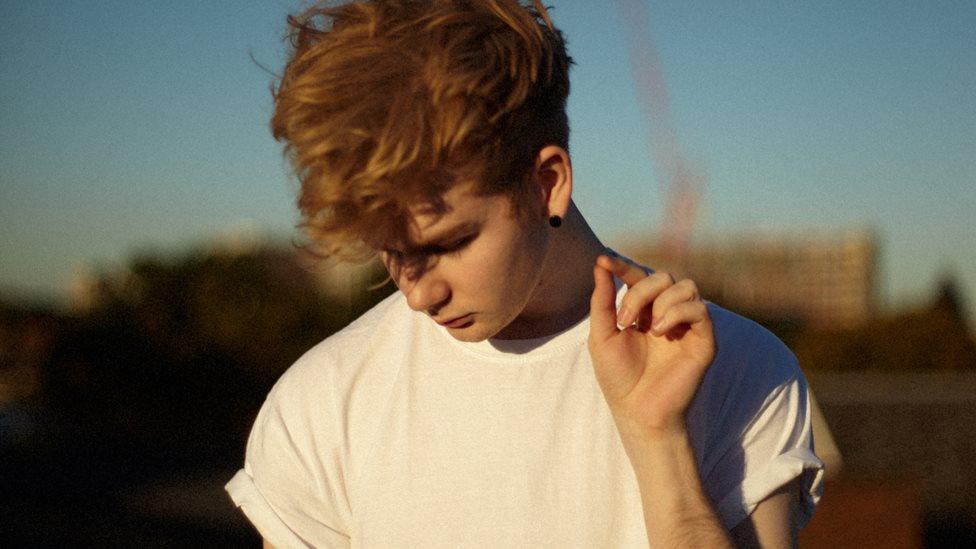
Mura Masa: "I come from the internet generation"
Congratulations on making the top five Sound of 2016. How does it feel?
Sort of baffling. It's an honour, but it's scary and exciting.
You grew up in Guernsey, which isn't a place that's renowned for cutting-edge dance music.
There was a footballer, Matt Le Tissier, from Guernsey. But as far as music, no, not many people have come out of there.
Did that sense of isolation from the music scene help you develop your own sound?
I think so. If you grew up in London's East End you'd probably be inclined to be into something like grime music. But if you're removed from it, like in Guernsey, you can have a wider set of influences, and you're not tied down to any genre or any scene. I think that affects my sound, for sure.
What sort of music did you grow up listening to?
At a young age, I was introduced to Joni Mitchell by my mum. My dad was into progressive rock. But when YouTube came around in 2005 or 2006, suddenly all the music was available and you just had to do your own research.
There's a strong oriental theme to your music - how did you work out those sounds and scales and styles of playing?
Just a lot of time and patience, really. A lot of people say they're influenced by things, but they don't actually listen to what's happening in the music.
If you do your homework properly before you try and write it becomes simple.
Did you have musical training?
I started playing violin when I was about five years old and I learned to read a little bit of music, but that's all been long, long forgotten! I actually quit violin to teach myself guitar and just went from there.
Do you remember the first song you produced?
Oh gosh. It was a really, really terrible dubstep track. It had a sample of Robin Williams in it shouting "Gooooood Morning Vietnam!" It was awful.
You started uploading music to the internet very quickly. What was the impetus for that?
Because I'm from Guernsey, I couldn't swap music with many people. I had a couple of friends who were making music but I think online was just the natural way for me to get heard. I come from the internet generation, so it kind of made sense. There wasn't any deep thought put into it.
The first track I uploaded was called Death Grips - but it doesn't exist any more. I deleted it because it's so bad!
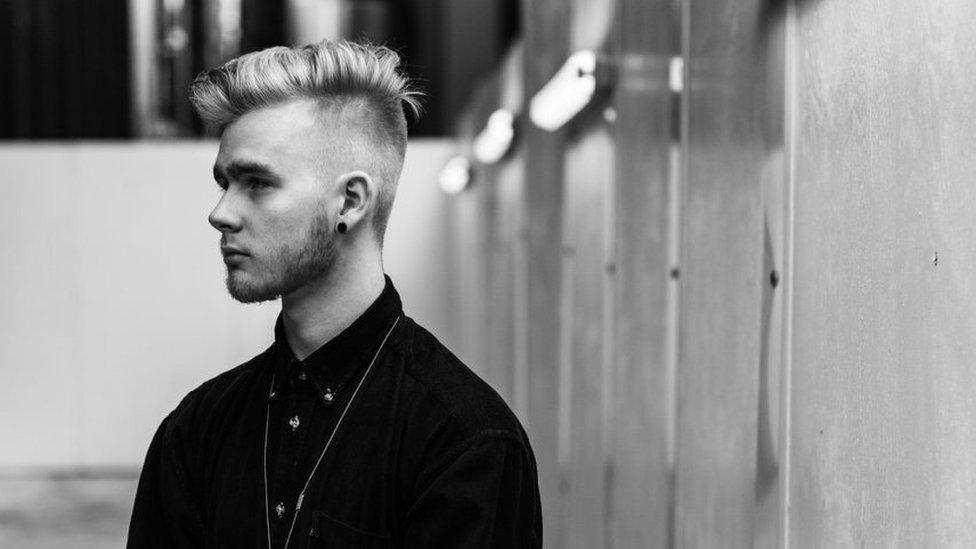
Mura Masa has been asked to remix songs for the likes of Ed Sheeran and Ellie Goulding, while studying English at Sussex University
When did you first realise people were taking notice?
I put out a mix tape at the end of last year called Soundtrack To A Death, external and it was just a beat tape - but Jo Whiley played it on Radio 2, and then Huw Stephens made it album of the week on Radio 1. It was all very strange.
But I think that was when I started developing my own sound and I think people started tuning in to that.
How would you describe that sound?
Gosh, this is always the question I dread! But it takes everything that I love about hip-hop and electronic music and mashes it together in the setting of lo-fi, oriental-influenced beat music.
Is the flute part in Lotus Eater, external a sample?
I wrote that, actually.
That's incredible. It sounds like its come from a dusty old piece of vinyl.
That's what's great about it, I think, because you can write a part and retroactively make it lo-fi and make it sound like a sample. That's something I love doing.
That song would fit perfectly on a film soundtrack - specifically a Quentin Tarantino film. Do you approach music visually?
For definite. I didn't start writing my debut album until I'd sorted the cover art. It's an intrinsic part of the whole process. The first music I really loved was Gorillaz and I think the way the visuals played into the music and told a story was very important to me.
It's funny you should mention Tarantino. I have two posters in my room - one's of the White Stripes and the other one is Pulp Fiction.
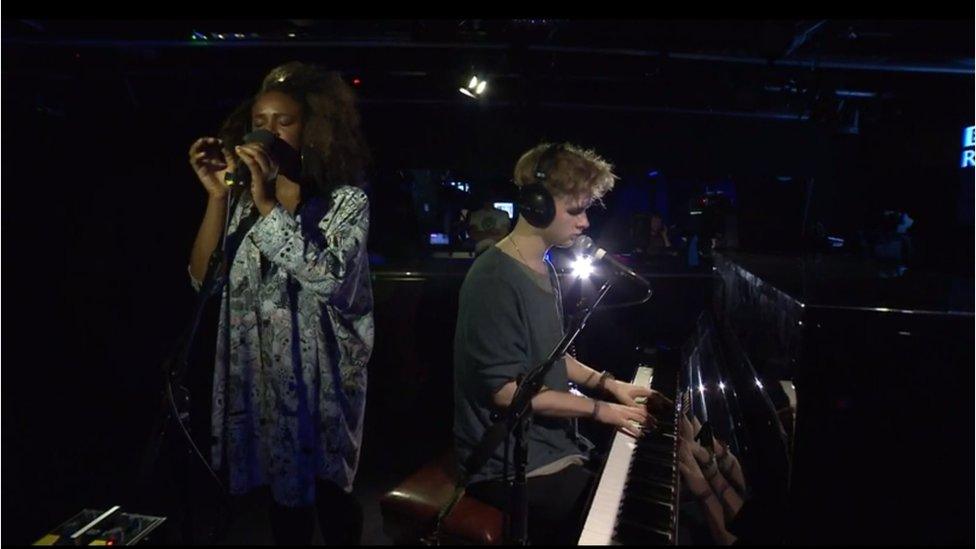
The musician has recorded with fellow Sound of 2015 nominee Nao
The strings on Love For That really emphasise the emotions of the song. Are they live instruments?
Yeah they are - and I think I'm going to be doing that a lot more on the album. It just makes it quite special hearing the bow moving on the strings.
It's cool to make people remember that, although electronic music is obviously produced electronically, it's still real music.
Your album is due out in the first couple of months of 2016. Is it finished?
I'm about half-way done. The way I work, everything tends to come together last minute. It's called To Fall Out Of Love To and it's got a story arc to it.
Is it a concept album?
Erm… yeah. But to me, whenever I hear the words "concept album", it means the music isn't that good but there's a really cool idea behind it. I want to hit the target of really good music and really meaningful lyrical content.
You've already been played on daytime radio - is the ambition to crossover into the mainstream?
If you go into this expecting a number one single then you're a pop artist - and I don't think I am a pop artist… yet.
At the end of the day, my personal ambition is just to make really, really, really good music that's culturally relevant and stands the test of time. That's all I want.

- Published4 January 2016
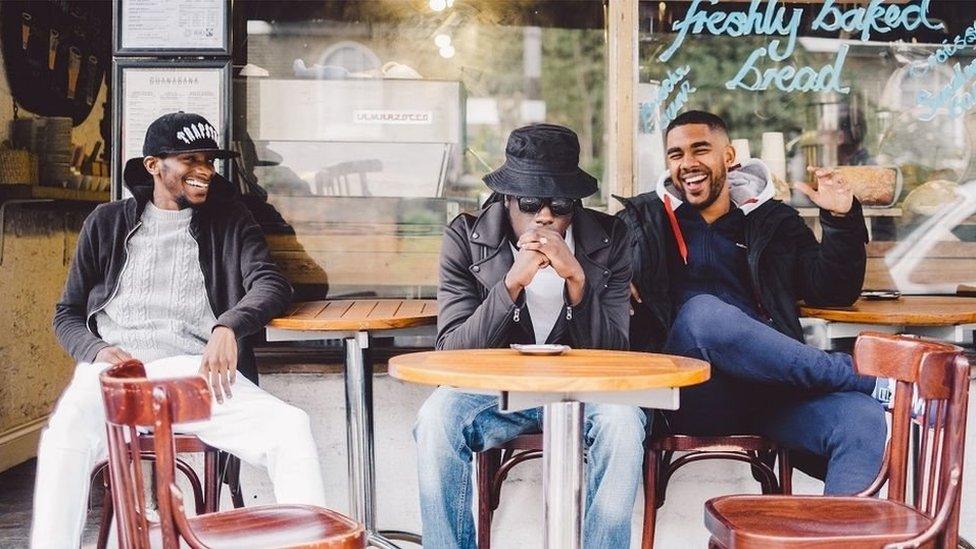
- Published30 November 2015
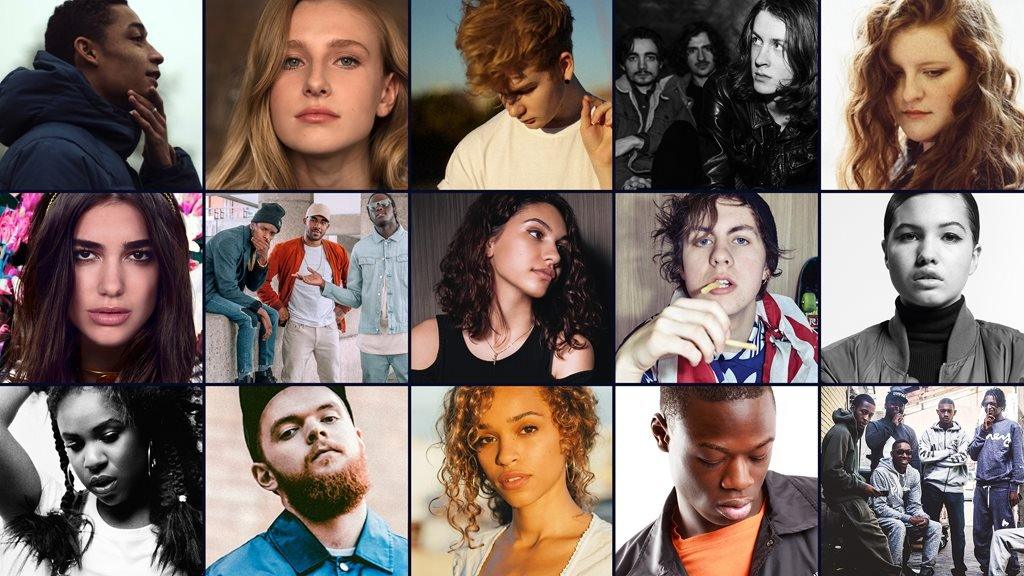
- Published1 January 2016
